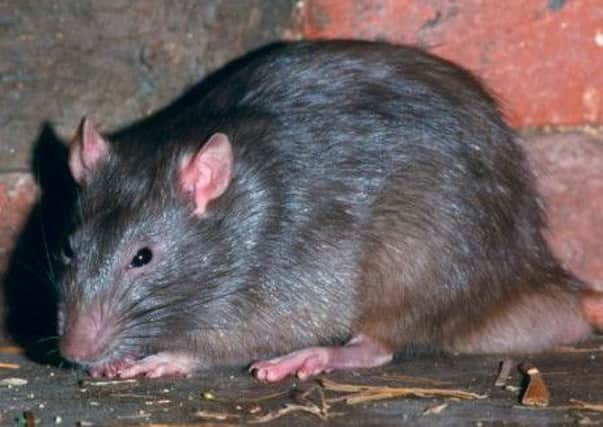Numbers of ‘super rats’ could soar in Lancashire


Experts fear numbers of the rodents, which have grown resistant to conventional poison, could soar in the next few months boosted by a combination of colder temperatures and increasingly wet weather.
The British Pest Control Association (BPCA) says the spread of the rats has been accelerated by failed home treatments, which have helped them grow bigger and stronger as well as build up their immunity.
Advertisement
Hide AdAdvertisement
Hide AdThe trade body has revealed many ‘over-the-counter’ remedies are now ineffective and insists control of the rodents has become a matter for professionals.
The BPCA has issued the advice ahead of National Pest Prevention Week (November 9-14) - an initiative designed to raise public awareness of all pests, how they can be avoided and the value of using expert controllers.
Simon Forrester, chief executive of the BPCA, said: “Reports of poison-resistant rats have been increasing in recent years and it seems likely that there’ll be a further surge in numbers during the coming months.
“There’s less natural food around during colder weather so the population of rodents in and around homes and business premises could swell at an alarming rate as we head into winter.
Advertisement
Hide AdAdvertisement
Hide Ad“The trouble is that people who try to treat problems themselves are likely to be making the problem worse.
“The rodents have become resistant and, in some cases, immune to off-the-shelf poisons to the point where they’re actually feeding off the toxic pellets, which means their size and strength is increasing.
“Stronger rodenticides can be more effective, but most are subject to strict legislation and must only be used by professional pest controllers, so it has become very important to make sure infestations are treated by experts in the field.”
The population of rats resistant to poison has increased rapidly in recent years due to a naturally-occurring mutation of genes.
Advertisement
Hide AdAdvertisement
Hide AdEstimates put the current rat population at more than 100 million. They carry bugs which can be passed to humans, including Weil’s disease, which can lead to jaundice and kidney failure.
Mr Forrester said: “Normal rats are being killed off by poison, so these resistant species are taking their place.
“It’s only natural that their numbers are expanding and there could be a significant risk to public health if their population is left unchecked.”
A typical home may have more than a dozen potential entry points for the rodents. They get through gaps as small as 15mm, often using plumbing pipes and unscreened vents or gaps in the eaves and roof edges.
Advertisement
Hide Ad